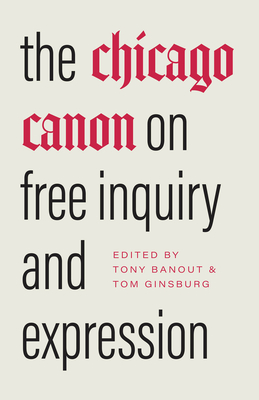A collection of texts that provide the foundation for the University of Chicago's longstanding tradition of free expression, principles that are at the center of current debates within higher education and society more broadly. Free inquiry and expression are hotly contested, both on campus and in social and political life. Since its founding in the late nineteenth century, the University of Chicago has been at the forefront of conversations around free speech and academic freedom in higher education. The University's approach to free expression grew from a sterling reputation as a research university as well as a commitment to American pragmatism and democratic progress, all of which depended on what its first president referred to as the "complete freedom of speech on all subjects." In 2015, more than 100 years later, then University provost and president J. D. Isaacs and Robert Zimmer echoed this commitment, releasing a statement by a faculty committee led by law professor Geoffrey R. Stone that has come to be known as the Chicago Principles, now adopted or endorsed by one hundred US colleges and universities. These principles are just a part of the long-standing dialogue at the University of Chicago around freedom of expression--its meaning and limits. The Chicago Canon on Free Inquiry and Expression brings together exemplary documents - some published for the first time here - that explain and situate this ongoing conversation with an introductory essay that brings the tradition to light. Throughout waves of historical and societal challenges, this first principle of free expression has required rearticulation and new interpretations. The documents gathered here include, among others, William Rainey Harper's "Freedom of Speech" (1900), the Kalven Committee's report on the University's role in political and social action (1967), and Geoffrey R. Stone's "Free Speech on Campus: A Challenge of Our Times" (2016). Together, the writings of the canon reveal how the Chicago tradition is neither static nor stagnant, but a vibrant experiment; a lively struggle to understand, practice, and advance free inquiry and expression. At a time of nationwide campus speech debates, engaging with these texts and the questions they raise is essential to sustaining an environment of broad intellectual and ideological diversity. This book offers a blueprint for the future of higher education's vital work and points to the civic value of free expression.










